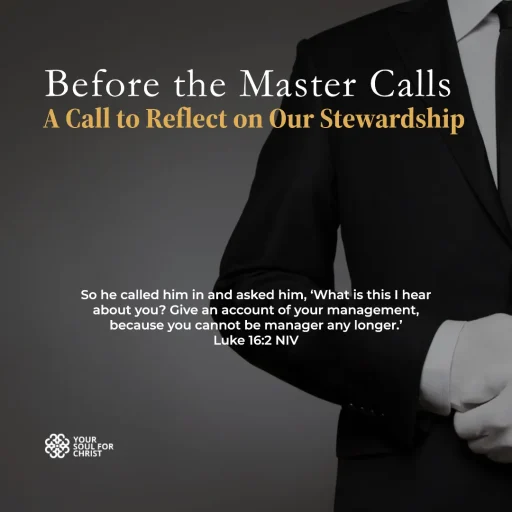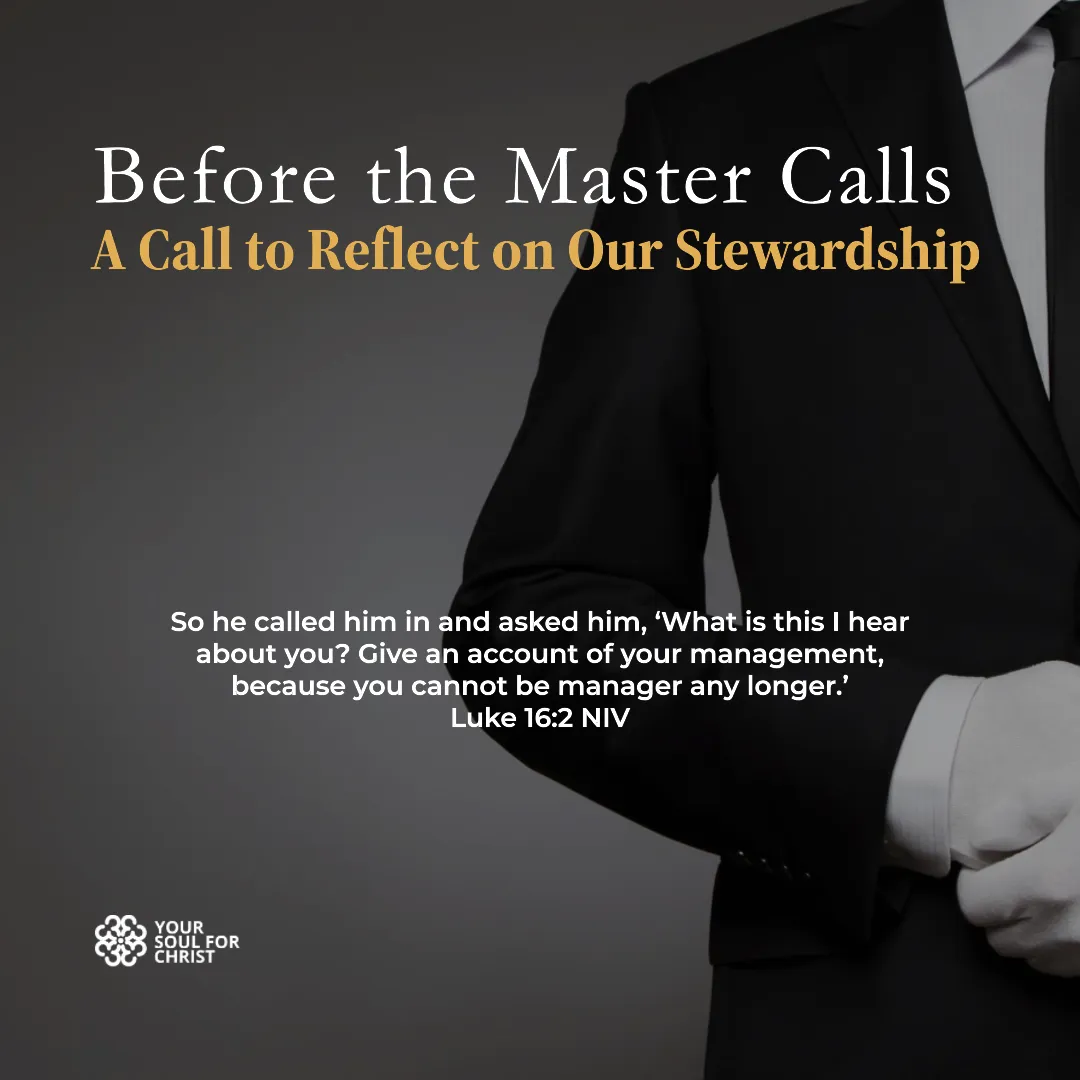So he called him in and asked him, ‘What is this I hear about you? Give an account of your management, because you cannot be manager any longer.’
Luke 16:2 NIV
Jesus paints a vivid picture in Luke 16, where a steward finds himself summoned to give an account of his actions. At first glance, this moment in Scripture resembles a business scenario. However, Jesus uses it to highlight a far deeper reality. This parable isn’t about financial reports or ancient servants—it’s a reflection of our spiritual lives and the seriousness of our stewardship.
The word stewardship carries profound meaning for every believer. We don’t simply receive blessings from God; we manage what He places in our care. Time, talents, relationships, resources, and the message of the Gospel all flow from His hand into ours—not as owners, but as caretakers. Jesus makes it clear that God expects us to handle what He entrusts to us with integrity, wisdom, and faithfulness. It demands action, not just good intentions.
Scripture offers striking examples of those who honoured God through faithful stewardship. Joseph, sold into slavery and later raised to authority in Egypt, embraced his role with grace. He managed Potiphar’s household and, eventually, the grain supplies of an entire nation. His faithful management saved lives and brought glory to God.
In contrast, King Saul’s poor handling of divine instruction cost him his kingdom. God commanded full obedience in 1 Samuel 15, but Saul compromised. When Samuel confronted him, Saul shifted the blame rather than accept responsibility. The Lord saw through the excuses. His rejection of Saul wasn’t simply about failure—it was about a heart that resisted faithful stewardship.
This biblical theme carries weight today. Stewardship influences every aspect of our lives, from leadership roles to personal habits. At work, managers face consequences for mishandling resources. Within the Church, spiritual leaders bear responsibility for their flocks. And in our homes, the way we treat our families reflects our understanding of what God has entrusted to us.
Jesus never softened the truth about accountability. Romans 14:12 declares that each of us will give an account of ourselves to God. This ties directly into Luke 16:2 and the sobering reality of eternal evaluation. In Matthew 25, the Parable of the Talents makes it plain—each person receives something to manage, and each must report back. The servant who buried his talent faced judgment not because he lost it, but because he did nothing. Faithful stewardship means using what we’ve been given, not hiding it away.
Before God calls us to give an account, we have the chance to examine our lives. Quiet reflection now brings clarity and an opportunity to course-correct. Are we using our time wisely? Have we honoured the relationships God placed around us? Do we carry the Gospel with urgency and love? If we’re willing to ask these questions now, we position ourselves for grace-filled growth.
God’s call to stewardship invites us into purpose. He isn’t looking for perfect performance, but faithful hearts. Those who understand that everything we have is a gift begin to live with deeper intention. When we see our lives as borrowed time and entrusted treasure, our perspective changes. Suddenly, every moment becomes an opportunity to glorify God.
Living It Out
Take time today to reflect. Are you living as a faithful steward? Would your account reveal fruitfulness and faith, or distraction and delay? While grace still allows us time, let’s choose to live with eternity in mind.
One day, we will stand before the Master. May our lives reflect careful, loving, and intentional stewardship. And may we hear those words we long for: “Well done, good and faithful servant.”

